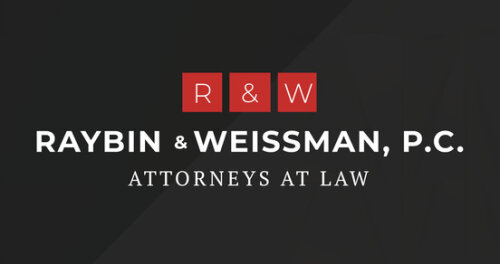Best Wrongful Death Lawyers in Nashville
Share your needs with us, get contacted by law firms.
Free. Takes 2 min.
List of the best lawyers in Nashville, United States
About Wrongful Death Law in Nashville, United States
Wrongful death claims arise when a person dies because of another partys negligence, intentional act, or failure to act. In Nashville, which is part of Davidson County in Tennessee, these claims are a civil remedy that seeks monetary compensation for losses suffered by the decedents survivors or estate. Wrongful death actions address costs such as funeral and medical bills, lost income and benefits, and certain non-economic losses like loss of companionship. A wrongful death case is separate from any criminal prosecution that may arise from the same incident - a criminal case seeks to punish a wrongdoer, while a wrongful death lawsuit seeks to compensate survivors for harms caused by the death.
Why You May Need a Lawyer
Wrongful death cases are legally and emotionally complex. A lawyer can help in many situations, including:
- When the cause of death is disputed or requires investigation, such as in medical negligence, motor vehicle collisions, workplace accidents, or defective product incidents.
- When you need help identifying all potentially responsible parties, including individuals, employers, manufacturers, or government entities.
- When the case involves insurance companies that may try to limit or deny compensation.
- When multiple survivors have competing interests and decisions must be made about who files suit and how recovery will be distributed.
- When evidence must be preserved, such as medical records, accident reports, electronic data, or biological samples.
- When specialized proof is required, for example expert testimony on medical causation, accident reconstruction, or product design.
- When pre-suit procedures or strict deadlines apply, such as notice requirements for claims against public entities or special rules for medical malpractice claims.
Local Laws Overview
Several local and Tennessee-wide legal rules are particularly relevant to wrongful death cases in Nashville:
- Who may bring a claim: Tennessee law provides specific rules about who can bring a wrongful death claim. Generally, close family members such as a surviving spouse or children are primary claimants, and the personal representative of the decedents estate may bring related claims on behalf of the estate. The exact parties who may sue and how recovery is distributed is controlled by Tennessee law.
- Types of actions - wrongful death and survival actions: In Tennessee, it is common to see both a wrongful death claim and a survival action. A wrongful death claim seeks compensation for losses to survivors from the death. A survival action is brought on behalf of the decedents estate to recover losses the decedent sustained between the injury and death, or other claims the decedent could have pursued if alive.
- Damages available: Recoverable items typically include funeral and burial expenses, reasonable medical expenses caused by the injury prior to death, loss of the decedents expected earnings and benefits, loss of services and support, and in some circumstances, compensation for loss of companionship and mental anguish. Punitive damages may be available in rare cases involving extreme misconduct, but they are not common.
- Standard of proof: Wrongful death claims are civil cases and are decided under the preponderance of the evidence standard - meaning the plaintiff must show it is more likely than not that the defendant caused the death.
- Comparative fault: Tennessee follows comparative fault principles that can reduce recovery if the deceased or survivors were partially at fault. The plaintiff's recovery is typically reduced in proportion to their percentage of fault.
- Deadlines and procedure: Timeliness is critical. Tennessee imposes statutes of limitations and, for some claims, special pre-suit or notice requirements. For example, claims against governmental entities often require a timely written notice of claim. Medical malpractice and certain professional liability claims may have additional procedural steps such as expert review or pre-suit notice. Missing these deadlines or requirements can bar a claim, so prompt legal consultation is essential.
- Venue and courts: Wrongful death lawsuits in Nashville are typically filed in Davidson County courts. If the case involves a government defendant or special jurisdictional issues, venue and procedural rules may affect where and how the case proceeds.
Frequently Asked Questions
What is the difference between a wrongful death claim and a criminal prosecution?
A criminal prosecution is brought by the state to punish unlawful conduct and can result in imprisonment or fines. A wrongful death claim is a civil lawsuit brought by survivors or the estate to obtain monetary compensation for financial and certain non-economic losses caused by the death. Both can arise from the same incident, and outcomes in one do not automatically control the other.
Who can file a wrongful death lawsuit in Nashville?
Typically a surviving spouse, children, or other close family members may bring a wrongful death lawsuit. Additionally, the personal representative of the decedents estate may bring a survival action. Tennessee law defines the parties who may sue and how recovery is allocated, so its important to consult a local attorney to determine eligible claimants in a specific case.
What kinds of damages can survivors recover?
Survivors can often recover economic losses like funeral and burial expenses, reasonable medical expenses related to the injury, lost income and benefits the decedent would have provided, and loss of household services. Courts may also award compensation for non-economic losses such as loss of companionship and mental anguish, subject to Tennessee law and the facts of the case. Punitive damages are possible in cases of severe misconduct but are relatively uncommon.
How long do I have to file a wrongful death claim?
Deadlines for filing civil claims are governed by statutes of limitations and can be strict. Certain types of claims or claims against government entities have additional shorter notice windows or pre-suit requirements. Because deadlines vary, you should contact a knowledgeable wrongful death attorney promptly to protect your rights and avoid losing your ability to recover.
What evidence is most important in a wrongful death case?
Key evidence includes the death certificate, medical records, autopsy and toxicology reports, police and accident reports, witness statements, photographs, video or electronic data, employment and earnings records, and any physical evidence related to the incident. Expert testimony is often necessary to establish cause of death and damages, such as medical experts, accident reconstructionists, or economic analysts.
Will I need an expert to prove my case?
Many wrongful death cases require expert witnesses to establish causation and damages. For example, medical experts may be needed to show that medical negligence caused the death, or accident reconstruction experts may be needed to explain how a crash occurred. An attorney can help identify and retain appropriate experts for the case.
How do insurance companies factor into wrongful death claims?
Insurance companies often play a major role because defendants may be insured and insurers handle settlement negotiations. Insurers may offer quick low-value settlements, so it is important to consult an attorney before accepting any offer. An attorney can evaluate the offer, negotiate on your behalf, and help determine whether the full value of your claim will be addressed.
Are there special rules if the defendant is a government agency?
Yes. Claims against government entities frequently have mandatory notice-of-claim requirements and shorter filing deadlines. Failing to comply with those requirements can bar recovery. If the death was allegedly caused by a public employee or municipal action, you should seek legal advice immediately to ensure compliance with applicable notice rules.
How long does a wrongful death case usually take?
Duration varies widely depending on complexity, number of parties, availability of evidence, and whether the case settles or goes to trial. Some cases resolve in several months through settlement, while more complex matters or those requiring trial can take years. Your attorney can provide a more specific timeline based on the facts of your case.
Do wrongful death attorneys work on contingency-fee arrangements?
Many wrongful death attorneys handle cases on a contingency-fee basis, meaning the lawyer is paid a percentage of any recovery and advances case expenses. This arrangement makes representation accessible to many families, but fee structures and expense practices vary. Always discuss fees and costs in an initial consultation and get the agreement in writing.
Additional Resources
If you need more information or assistance, the following resources and organizations can be helpful:
- Tennessee Bar Association - for referrals and information about lawyers licensed in Tennessee.
- Metro Nashville Clerk or Davidson County court offices - for information about filing procedures and local court rules.
- Tennessee Administrative Office of the Courts - for statewide court information and resources.
- Tennessee Department of Health - Office of Vital Records - to obtain certified death certificates and vital records.
- Tennessee Department of Commerce and Insurance - for consumer information related to insurance matters.
- Tennessee Board of Medical Examiners or other professional licensing boards - if the matter involves alleged professional misconduct.
- Local legal aid organizations and victim assistance programs - for support services and guidance during emotionally difficult times.
Next Steps
If you believe you have a wrongful death claim in Nashville, consider these practical next steps:
- Seek immediate legal advice. Talk to an experienced wrongful death attorney as soon as possible to understand deadlines, rights, and next steps.
- Preserve evidence. Keep and make copies of medical records, police reports, photographs, communications, and any physical evidence. Do not dispose of items that may be relevant.
- Obtain a certified death certificate and relevant records. These documents are essential for both legal and administrative matters.
- Avoid signing releases or agreeing to settlement offers without consulting counsel. Early settlement offers are often lower than the case may be worth.
- Gather contact information for witnesses and anyone with knowledge of the events leading to the death.
- If a government entity may be responsible, determine whether notice-of-claim or other administrative steps are required and act promptly.
- Ask about fee arrangements and written engagement agreements. Confirm whether the attorney works on contingency and how case expenses will be handled.
- Lean on available support services. Coping with a wrongful death is emotionally taxing; consider counseling, family support, or victim services while pursuing legal remedies.
Facing the loss of a loved one is difficult. While no legal process can erase that loss, timely legal action and experienced counsel can help families pursue fair compensation and hold responsible parties accountable. Contact a local wrongful death attorney for an individualized evaluation of your situation and guidance on the best path forward.
Lawzana helps you find the best lawyers and law firms in Nashville through a curated and pre-screened list of qualified legal professionals. Our platform offers rankings and detailed profiles of attorneys and law firms, allowing you to compare based on practice areas, including Wrongful Death, experience, and client feedback.
Each profile includes a description of the firm's areas of practice, client reviews, team members and partners, year of establishment, spoken languages, office locations, contact information, social media presence, and any published articles or resources. Most firms on our platform speak English and are experienced in both local and international legal matters.
Get a quote from top-rated law firms in Nashville, United States — quickly, securely, and without unnecessary hassle.
Disclaimer:
The information provided on this page is for general informational purposes only and does not constitute legal advice. While we strive to ensure the accuracy and relevance of the content, legal information may change over time, and interpretations of the law can vary. You should always consult with a qualified legal professional for advice specific to your situation.
We disclaim all liability for actions taken or not taken based on the content of this page. If you believe any information is incorrect or outdated, please contact us, and we will review and update it where appropriate.









